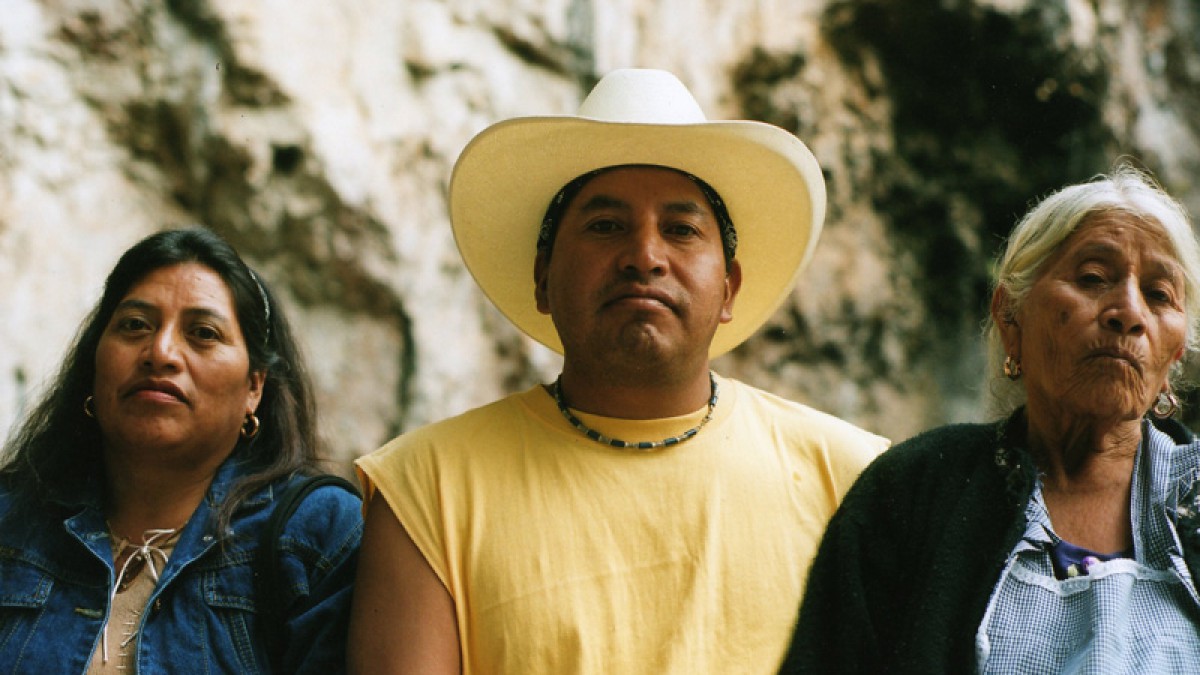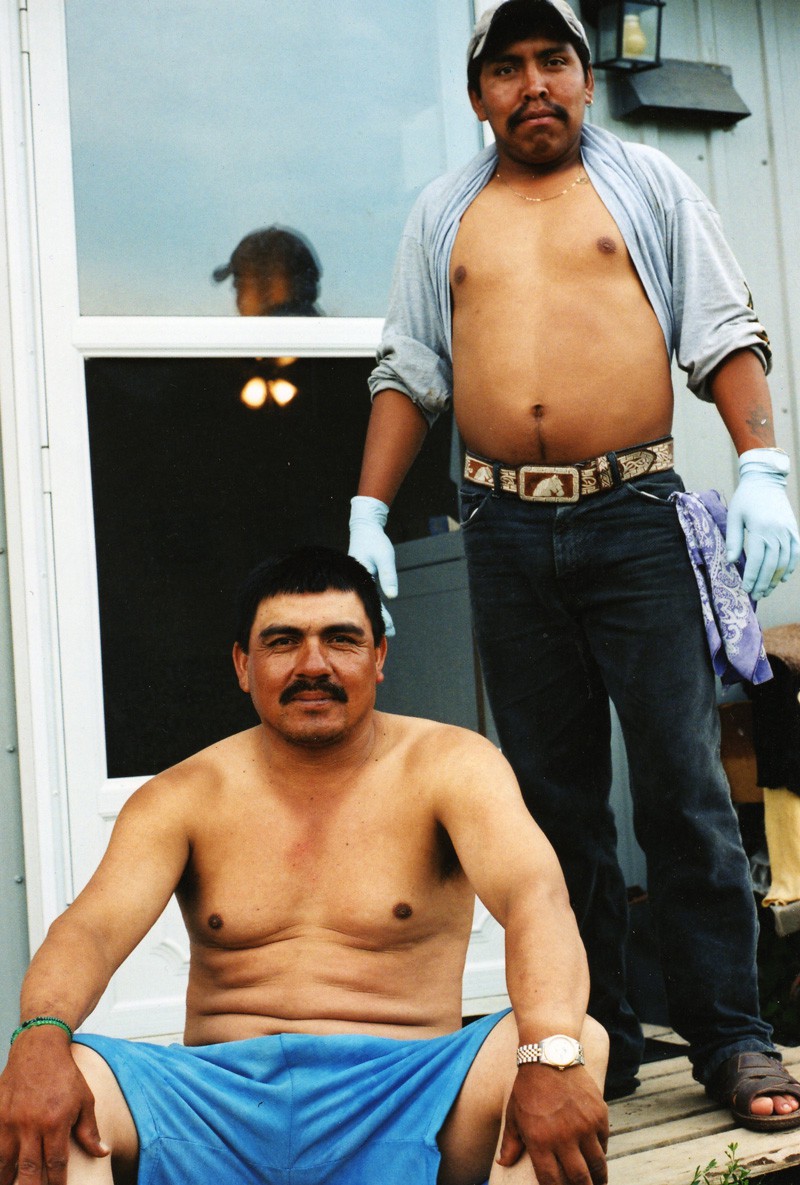
After a long week in the fields, Francisco Duran-Garcia from Zoyatzingo, Estado de Mexico (standing) and Ismael Minero-Cahualtzi from Alpotzonga, Tlaxcala, spend their Saturday evening cleaning their bunkhouse. Both Francisco and Ismael have been a part of the Seasonal Agricultural Worker Program for several years.
Back home in Zoyatzingo, Francisco is known as a jack of all trades. On any given day, he can be found laying cement for a new community sidewalk, painting the new flagpole at his community’s elementary school, or harvesting mogote (dried maize used for the production of tortillas) with local farmers.
For many years, Ismael ran his own taco stand in Mexico City’s busy Avenida de los Insurgentes (Insurgents’ Avenue). Recently, however, he has decided to return to his family home in the state of Tlaxcala, where he and his wife now make and sell tortillas and sometimes tacos from their home. Ismael’s daughter recently celebrated her 15th birthday, a momentous celebration in Mexican culture.
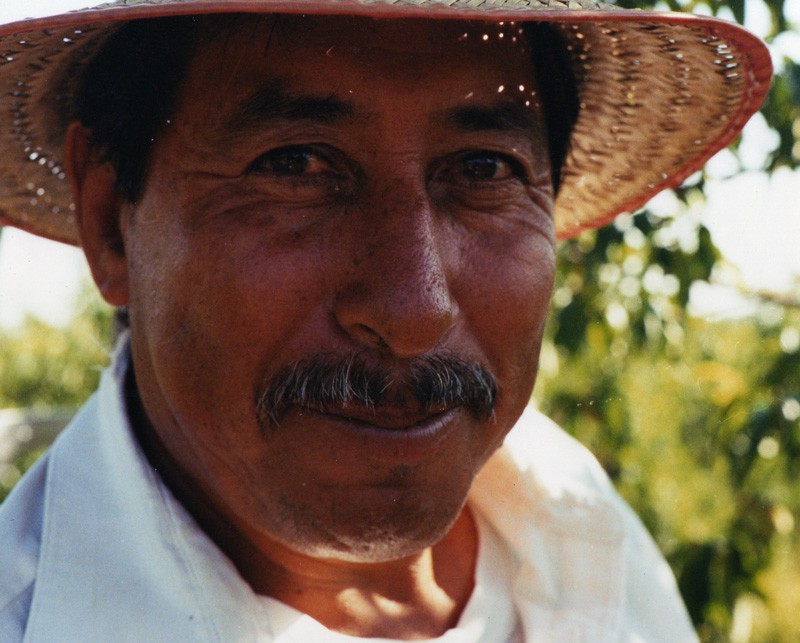
Most of his colleagues at the orchard work in Canada for only six months of the year, but Cirilo Rodriguez-Hernandez from Apizaco, Tlaxcala, often stays an extra two months to work at a nearby fruit tree nursery. Cirilo frequently wires money home to his wife, two daughters, son, and five grandchildren. With such a large family, the extra money he can make during that time is indispensable.

Although he now works in Ontario, Armando from Amecameca, Estado de Mexico, has also worked on farms in Manitoba. Photographed here in the midst of an impromptu bunkhouse performance, Armando is a passionate musician who not only enjoys entertaining his colleagues in the evenings and on weekends, but has also played public performances at the Mexican Independence Day celebrations in Leamington, Ontario. This year, with the help of his employer, Armando has been able to bring his eldest son to work alongside him in Canada. The two now live and work together on the same Ontario farm for six months of the year.
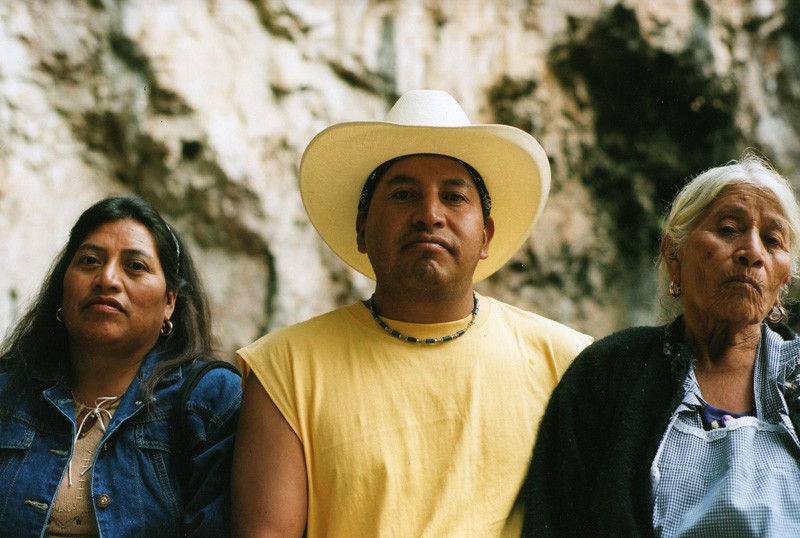
Posing with his sister and mother on an outing to the outdoor market of San Cristobal de las Casas, Hildardo Lopez-Solorsano from La Independencia, Chiapas, works on a cucumber farm in Ontario for six to eight months of the year. Although the vast majority of Mexican migrant workers in Canada hail from central Mexico, the program has recently decentralized much of the application process, which is administered by the Mexican Ministry of Labour. Previously, people interested in coming to work in Canada would have to travel back and forth to Mexico City several times, a significant endeavour for someone who lives on the Mayan Peninsula or in Tijuana. Increasingly, however, the Seasonal Agricultural Worker Program is much more representative of the general Mexican population, with workers coming from such disparate communities as Quintana Roo in the south or Sinaloa in the north.
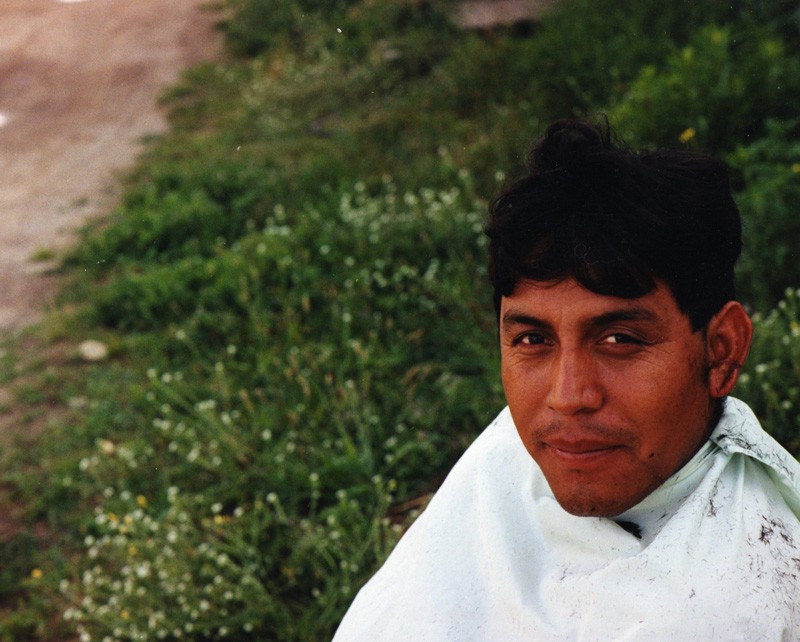
Cecilio Soto-Perez from San Antonio Xicotenco, Puebla, has just had his hair cut by a fellow migrant worker. Services such as haircuts and bicycle repair are often bartered or rendered for a small fee within the migrant community. Back in Mexico, Cecilio has recently moved into a new house that he managed to build with the money that he has made in Canada.
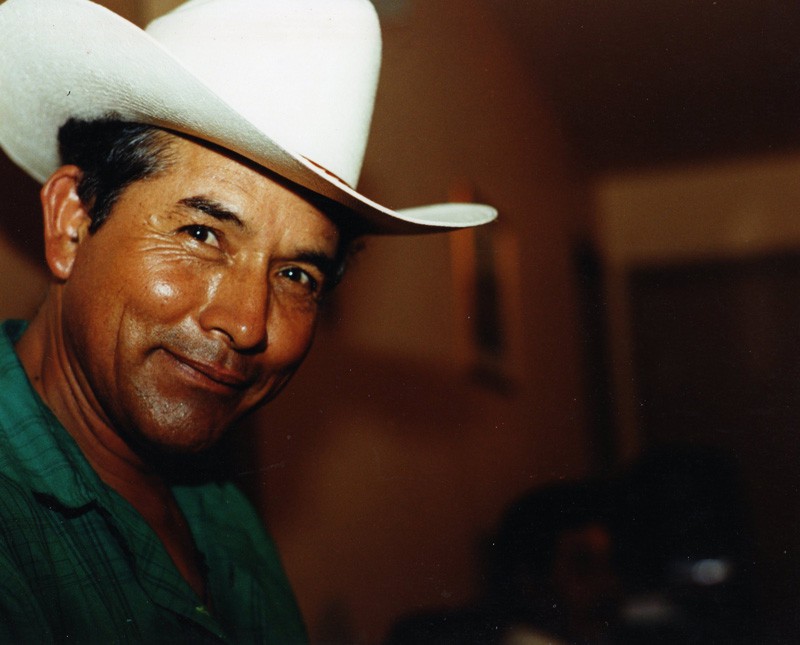
Rosendo Hernandez-Hernandez is from San Cristobal, Guanajuato, a small town that sends a substantial number of its working-age men to Canada as seasonal farmworkers. Rosendo, who has never been to the U.S., has children living in Georgia; in 2005 he was first introduced to his twin granddaughters, both American citizens. Rosendo and his older brother, Evaristo, work together on the same farm while they are in Canada.
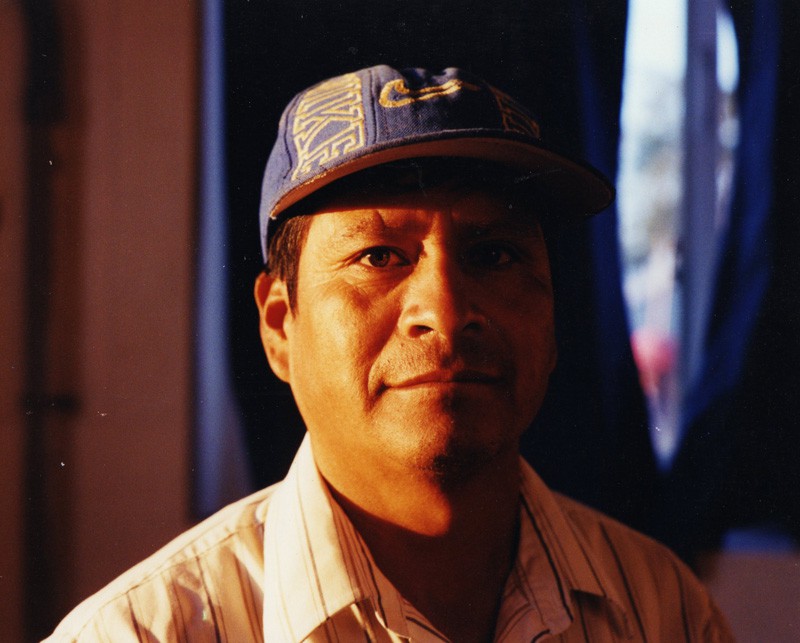
The first language of Camilo Leon-Santiago from Agua Zarca, Oaxaca, is Mixteco, a language indigenous to Central and Western Oaxaca. While he is in Canada, Camilo must communicate in two foreign languages: English with his employers and the people in the local community, and Spanish with his Mexican co-workers. In 2005, Camilo was honoured to be appointed chief of his community for one year, which meant he could take the year off from coming to work in Canada’s orchards.
Adam Perry is an MA student in Adult Education and Community Development at the Ontario Institute for Studies in Education at the University of Toronto. Since 2003 he has organized photo exhibits and panel discussions on migrant agricultural issues in Halifax, Peterborough and Toronto. In 2005 he directed the community play “A Common Family,” written by and starring migrant farm workers from Mexico and the Caribbean in Leamington, Ontario.


